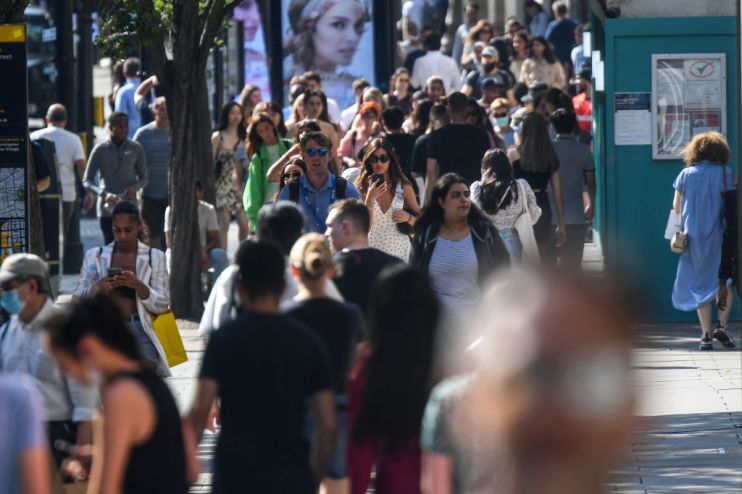Bank of England’s reputation is at stake in the interest rate tragicomedy

Misplaced expectations often lead to wasted time. Pip, Vladimir and Estragon waiting for Godot, and even England fans crying out for the arrival of Jack Grealish during Euro 2020. These stories teach us that banking on something to happen can lead to opportunities going amiss. The Bank of England could be lumped into that group as it waits for inflation to pass.
Monetary policy is largely anchored by two aims: maintaining price stability and keeping inflation in check. The Bank’s forecasts for the latter have been off the mark lately. Inflation has risen from two per cent to 3.2 per cent in just a month. The Bank expects prices to rise four per cent by the end of the year – double its target. The longer inflation lurches away from target, the more confidence in the Old Lady will erode.
Mapping out a plan for the bond programme in the monetary policy committee announcement tomorrow would flex the Bank’s inflation fighting muscles. Confidence in inflation holding steady helps financial markets function smoothly and households and firms make better purchasing decisions. Expectations of where inflation is headed is partly reasoned by incorporating monetary authorities’ own expectations. So, producing accurate inflation forecasts helps economies optimise spending.
Inflation forecasts have always been off the mark – economists expected the latest number to be around 2.9 per cent. During the pandemic, they have not even been close. The Bank has been one of the worst offenders. In its May monetary policy report, the Old Lady undershot June inflation by 0.8 percentage points. They think inflation will run significantly above target for a while to come.
The impact of undershooting forecasts is to raise households and investors’ own expectations for future inflation. Once this happens, it is difficult to catch the tiger’s tail.
In the worst case scenario, workers demand higher wages, investors demand higher yields and borrowing costs increase. In the best case, high inflation is “transitory”.
There is a very real prospect of inflation being stickier than the Bank expects. The OECD has raised its inflation forecast for the UK. According to the Bank’s latest survey on inflation attitudes, expectations about long term inflation are rising. Brits judge it will hit three per cent – in five years’ time.
Since the last meeting, the likelihood of tightened policy from the bank is high. Governor Andrew Bailey has said there was a dead tie among the MPC over whether conditions for hiking rates had been met in August. Calls to provide tapering guidance have strengthened after the European Central Bank signalled its own plans to tighten up ship. But a better measure of the Bank’s credibility is its resistance to intensifying pressure from markets to do what they expect it to do.
The UK eked out only a morsel of growth in July. Alarmingly, consumer-facing businesses’ output shrank for the first time since January. Retail sales fell unexpectedly by 0.9 per cent in August. Ailing pubs and restaurants show even the Great British consumer’s thirst for pints wasn’t enough.
Hiking rates or substantially curbing bond buying amid anaemic growth could derail the economic recovery before output has even recovered. Given the base effects driving the string of high inflation readings of late, it is understandable why the Bank is certain price spikes are temporary. But, buying into this judgement requires belief in the rigour of the underlying rationale. Taking the Bank’s recording on inflation forecasts thus far it is difficult to judge whether it stands up to scrutiny.